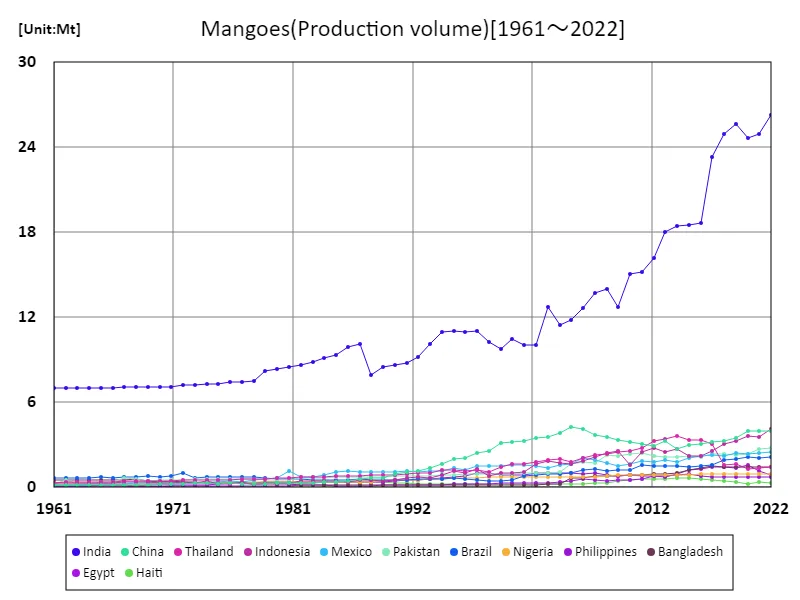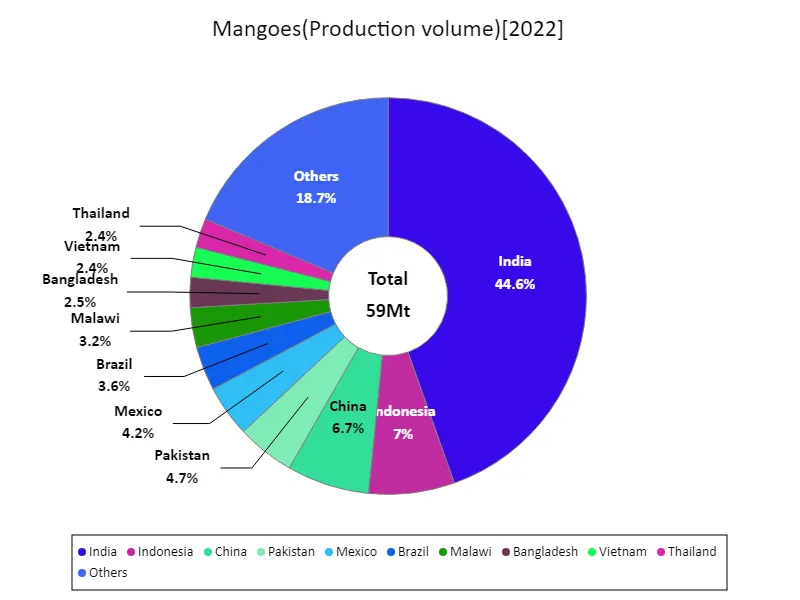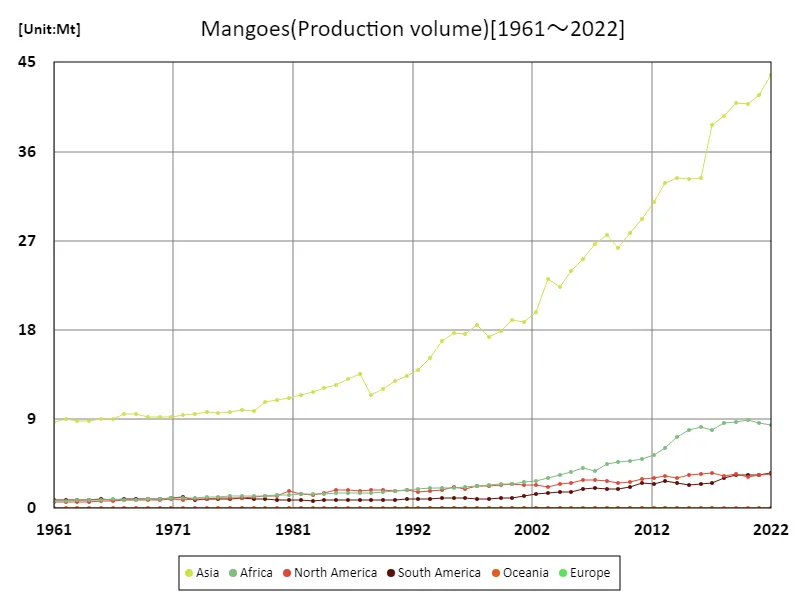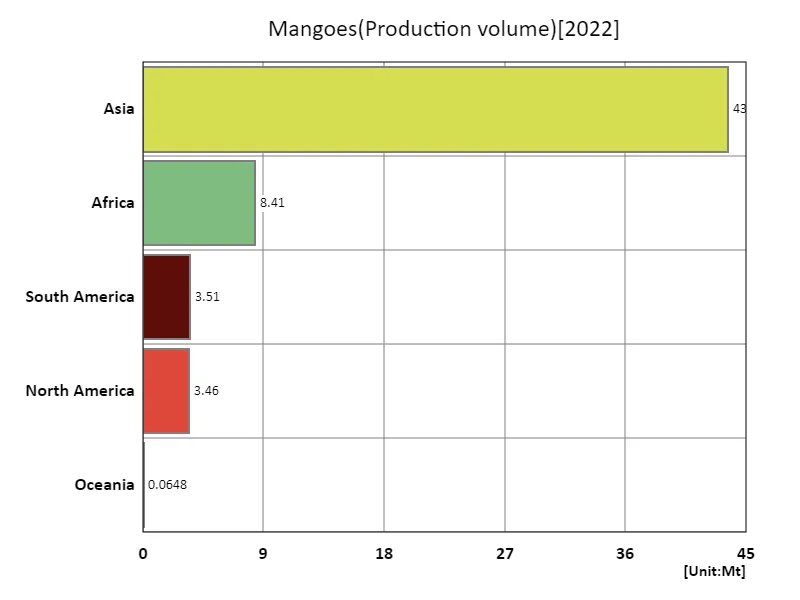Abstract
India has consistently been the world’s largest producer of mangoes, contributing to nearly half of global production. In 2022, India produced 26.3 million tons (Mt) of mangoes, maintaining its dominant position. Mango cultivation in India thrives due to its tropical climate and large agricultural areas, with major producing states like Uttar Pradesh, Andhra Pradesh, and Karnataka. Over the past decades, production has steadily increased, supported by improved farming practices and infrastructure. Mangoes are deeply integrated into Indian culture, with popular varieties like Alphonso, Dasheri, and Kesar. Globally, demand for Indian mangoes has grown, boosting exports to markets such as the Middle East, Europe, and the US.
Mango production (worldwide)
From 1961 to 2022, India’s mango production has shown significant growth, reaching a peak of 26.3 Mt in 2022, which is 100% of its highest recorded output. India has consistently led global mango production, contributing about 40-50% of the world’s supply. This steady rise reflects advancements in agricultural techniques, expansion of cultivated areas, and favorable climate conditions. Major producing regions include Uttar Pradesh, Andhra Pradesh, and Karnataka. Despite challenges like unpredictable weather and pest infestations, India’s mango industry continues to thrive, with increased domestic demand and growing export markets, especially in the Middle East, Europe, and the US.


The maximum is the latest one, 26.3Mt of India
Mango production (latest year, world)
In 2022, global mango production reached 59.1 Mt, with India leading at 26.3 Mt, nearly half of the total output. The global average production volume stood at 580 kt, highlighting India’s dominance in mango cultivation. Over the decades, production has surged, driven by expanding cultivation areas, improved agricultural practices, and rising global demand. While countries like China, Thailand, and Indonesia also contribute significantly, India’s tropical climate and large-scale farming have allowed it to maintain the top spot. Growing international demand, particularly in Europe, the Middle East, and the US, has fueled a steady increase in exports.


The maximum is 26.3Mt of India, the average is 584kt, and the total is 59Mt
Mango production (continent)
In 2022, Asia led global mango production with 43.7 Mt, representing around 74% of the world’s total output. Countries like India, China, Thailand, and Indonesia are key contributors, with India alone accounting for 26.3 Mt. The region’s favorable tropical and subtropical climates, along with extensive agricultural areas, make it ideal for mango cultivation. Over the years, production has steadily increased, driven by technological advancements, better irrigation, and improved crop management. Asia’s mango industry caters to both robust domestic markets and growing international demand, with exports expanding to Europe, the Middle East, and North America.


The maximum is the latest one, 43.7Mt of Asia
Mango production (latest year, continent)
In 2022, global mango production totaled 90.5 Mt, with Asia dominating at 43.7 Mt, nearly half of the world’s output. The average regional production was 12.9 Mt, reflecting significant contributions from key producers like India, China, Thailand, and Indonesia. Asia’s tropical and subtropical climates, combined with improved agricultural practices, have driven steady growth over the decades. This rise is supported by expanding cultivated areas, modern farming techniques, and high domestic demand. Additionally, global demand, especially from Europe and North America, has boosted exports, positioning Asia as a crucial player in the global mango market.


The maximum is 43.7Mt of Asia, the average is 11.8Mt, and the total is 59.2Mt



Comments